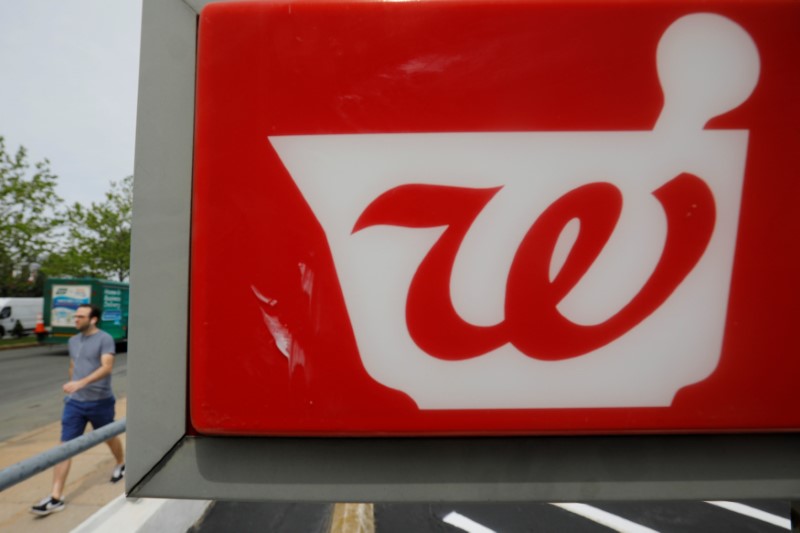
© Reuters. Walgreens (WBA) could lose place on venerable Dividend Aristocrats Index
On Wednesday, Walgreens Boots Alliance (NASDAQ:) did something, or should we say didn’t do something, for the first time in decades…it didn’t raise its dividend.
Each July, for the past 20 years, Walgreens has rewarded investors for their loyalty with the announcement of a sweetened dividend. In fact, in all, the company has raised its dividend each year for 47 consecutive years. So, when the company announced Wednesday that its quarterly dividend of 48 cents per share was unchanged, some investors were surprised.
While the company hasn’t formally changed the language on its dividend policy that reads, “the Company’s Board of Directors reviewed and refined the Company’s dividend policy to set forth the Company’s current intention to increase its dividend each year”, actions may speak louder than words.
Making matters worse, the inability to raise its dividend could get the stock kicked out of the venerable Dividend Aristocrat.
One of the eligibility factors for the index is that the company “must have an increased total dividend per share amount every year for at least 25 consecutive years.”
Not all is lost, however. Walgreens’ fiscal year ends in August, so it is still possible the company can have an out-of-cadence dividend increase sometime in its fiscal 2024.
The company for its part isn’t talking. A company spokesperson would not comment on if its dividend policy has been changed or if the company will be removed from the
Meanwhile, a spokesperson for S&P Dow Jones Indices said they “cannot comment or speculate on index constituent changes.” The index is reconstituted each year in January.
Dividend investors may already see the writing on the wall. Shares of Walgreens fell nearly 1.9% on Thursday as the S&P 500 rallied nearly 0.9%. The stock is down 20% year-to-date, which has pushed the dividend yield to a lofty 6.5% – which in and of itself raises eyebrows – suggesting it could be a dividend trap.





